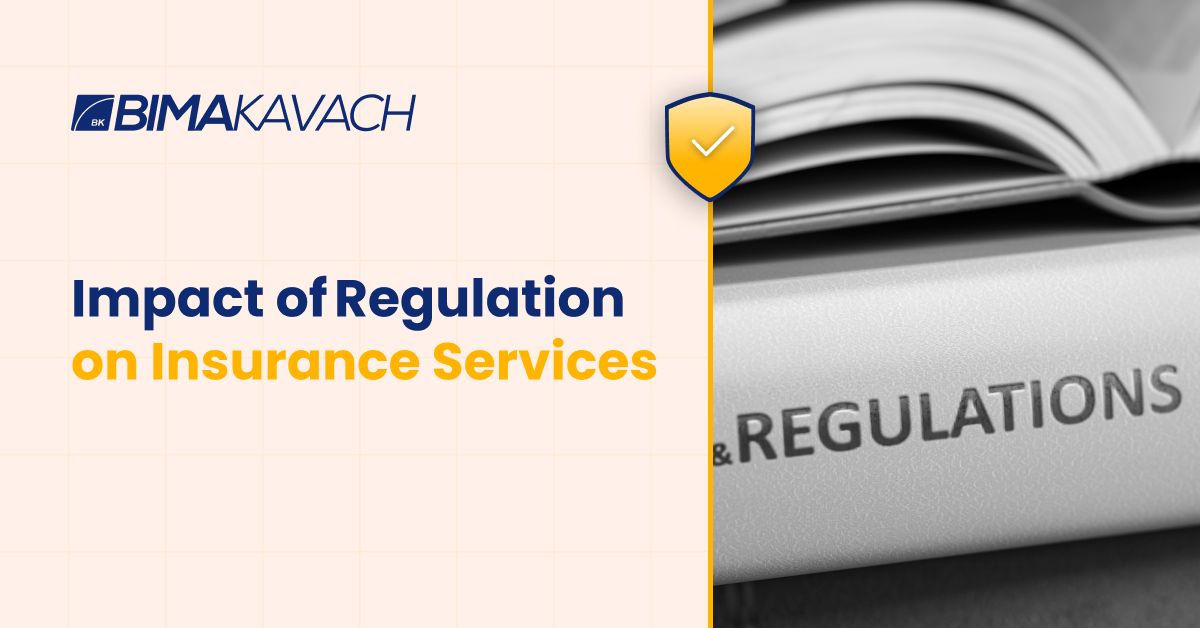The insurance industry in India is regulated by a number of bodies, each with its own specific responsibilities. Together, these bodies work to ensure that insurance companies are operating safely and soundly and that consumers are protected from fraud and other types of abuse.
While the regulatory landscape for insurance services in India can be complex, consumers need to understand the role of each regulatory body and how they work together to protect their interests. By staying informed and educated about the regulations governing the insurance industry, consumers can make informed decisions when it comes to choosing an insurance provider and purchasing insurance products.
Regulatory Bodies in the Indian Insurance Sector
The insurance sector in India is regulated by various entities to ensure transparency, fair practices, and protection of policyholders' interests. The following are the major regulatory bodies in the Indian insurance sector:
Insurance Regulatory and Development Authority (IRDA)
The Insurance Regulatory and Development Authority (IRDA) is the primary regulatory body for the insurance sector in India. It was established in 1999 under the Insurance Regulatory and Development Authority Act, 1999. The IRDA is responsible for regulating and promoting the insurance industry in India. It is responsible for overseeing all aspects of the insurance industry, from licensing and registration of insurance companies to setting guidelines for product development and pricing. It ensures that insurance companies comply with the regulations and guidelines set by the authority and protects the interests of policyholders.
Its primary responsibilities include:
- Regulating and promoting the insurance industry in India
- Licensing and regulating insurance companies, agents, and brokers
- Protecting the interests of policyholders
- Ensuring the financial stability of insurance companies
- Setting guidelines and regulations for insurance products and services
- Monitoring and enforcing compliance with regulations and guidelines
The IRDAI has been instrumental in promoting the growth and development of the insurance sector in India. It has introduced several initiatives to increase insurance penetration in the country and to make insurance products more accessible and affordable to the masses.
The Securities and Exchange Board of India (SEBI)
The Securities and Exchange Board of India (SEBI) primarily regulates the securities markets in India. SEBI's role is to protect the interests of investors in securities and to promote the development and regulation of the securities market. It does not have direct regulatory authority over the insurance sector. However, there may be instances where the functions of IRDAI and SEBI intersect, especially in the case of insurance companies that are publicly listed on stock exchanges. In such cases, SEBI's regulations related to listed companies may apply, but the core regulation of the insurance business itself falls under the purview of IRDAI. SEBI also has some oversight over insurance companies that issue unit-linked insurance plans (ULIPs). ULIPs are a type of insurance product that is linked to the performance of a stock market index.
Its primary responsibilities include:
- Regulating and promoting the securities market in India
- Regulating and supervising insurance companies that are listed on the stock exchange
- Ensuring that insurance companies comply with regulations related to disclosures and transparency
SEBI has been instrumental in promoting transparency and accountability in the insurance sector. Its regulations have helped to improve the quality of information available to investors and policyholders, and have helped to increase investor confidence in the insurance sector.
Get Free Quote in Minutes
The Pension Fund Regulatory and Development Authority (PFRDA)
The Pension Fund Regulatory and Development Authority (PFRDA) in India is primarily responsible for regulating and developing the pension sector in the country. PFRDA was established by the Government of India to promote old-age income security by establishing, developing, and regulating pension funds. PFRDA is responsible for the promotion and development of the National Pension System, a voluntary long-term retirement savings scheme designed to enable systematic savings. It's important to note that PFRDA's focus is on pensions and retirement-related financial products, and it does not regulate the insurance sector. However, it also has some oversight over insurance companies that offer pension products.
Insurance Ombudsman
The Insurance Ombudsman is an independent body that was established by the Government of India to resolve disputes between policyholders and insurance companies. The Ombudsman investigates complaints and provides recommendations to resolve disputes. It is regulated by the IRDA and is responsible for ensuring that policyholders' interests are protected.
In conclusion, the Indian insurance sector is regulated by various entities to ensure transparency, fair practices, and protection of policyholders' interests. These regulatory bodies work together to ensure that insurance companies comply with the regulations and guidelines set by the authority and protect the interests of policyholders.
Challenges Faced by Regulatory Bodies
Regulatory bodies in India face several challenges in regulating insurance services. Some of the challenges are as follows:
Lack of Resources
Regulatory bodies often face a shortage of resources, including staff and funding. This can make it difficult to effectively monitor and regulate the insurance industry, particularly in remote areas where access to information may be limited.
Complex Regulatory Framework
The regulatory framework for insurance services in India is complex and can be difficult to navigate. This can make it challenging for regulatory bodies to effectively enforce regulations and ensure compliance.
Limited Enforcement Powers
Regulatory bodies in India have limited enforcement powers, which can make it difficult to take action against non-compliant insurers. This can result in a lack of accountability and can undermine consumer confidence in the insurance industry.
Lack of Awareness
Many consumers in India are not aware of their rights and responsibilities when it comes to insurance. This can make it difficult for regulatory bodies to effectively regulate the industry and ensure that consumers are being treated fairly.
Corruption
Corruption is a major challenge faced by regulatory bodies in India. This can undermine the effectiveness of regulatory measures and can lead to non-compliance by insurers.
Overall, regulatory bodies in India face several challenges in regulating the insurance industry. These challenges must be addressed in order to ensure that consumers are protected and that the industry operates in a fair and transparent manner.

Impact of Regulation on Insurance Services
Regulation plays a crucial role in ensuring the stability and growth of the insurance sector in India. The regulatory framework for insurance services in India is overseen by the Insurance Regulatory and Development Authority of India (IRDAI). The IRDAI is responsible for regulating and overseeing the functioning of insurance companies and intermediaries in India.
One of the key impacts of regulation on insurance services is the protection of policyholders' interests. The IRDAI ensures that insurance companies comply with the regulations and guidelines set by the authority, which includes ensuring that policyholders are treated fairly and that their claims are settled on time.
Regulation also plays a role in ensuring that insurance companies maintain financial stability. The IRDAI sets capital requirements for insurance companies, which are designed to ensure that they have sufficient funds to meet their obligations to policyholders. This helps to prevent insolvencies and ensures that policyholders are not left without coverage in the event of a company's failure.
In addition to protecting policyholders and maintaining financial stability, regulation also helps to promote competition in the insurance sector. The IRDAI encourages new entrants into the market by providing licenses to new insurance companies and intermediaries. This helps to increase competition, which can lead to lower prices and better services for consumers. BimaKavach has a direct broking license from IRDA
Overall, the impact of regulation on insurance services in India is positive. It helps to protect policyholders, maintain financial stability, and promote competition in the sector. The IRDAI's regulatory framework ensures that insurance companies operate transparently and fairly, which is essential for the growth and development of the insurance sector in India.
Future of Insurance Regulation in India
The Indian insurance industry is expected to continue to grow rapidly in the coming years. As the industry grows, so will the need for effective regulation to ensure that consumers are protected and that companies are operating fairly and transparently.
Looking towards the future, the IRDAI is expected to continue to play a crucial role in regulating the industry. The regulator is likely to focus on the following areas:
- Technology: The IRDAI is expected to encourage the use of technology in the insurance industry to improve efficiency and reduce costs. This could include the use of artificial intelligence, blockchain, and other emerging technologies.
- Product Innovation: The regulator is likely to encourage product innovation in the industry to meet the changing needs of consumers. This could include the development of new insurance products that are tailored to specific customer segments.
- Consumer Protection: The IRDAI is expected to continue to focus on consumer protection and ensure that insurance companies are treating their customers fairly. This could include the introduction of new regulations to improve disclosure and transparency.
- Risk Management: The regulator is likely to focus on improving risk management practices in the industry to ensure that companies are adequately managing their risks. This could include the introduction of new regulations to ensure that companies have adequate capital to withstand unexpected losses.
Overall, the future of insurance regulation in India looks promising. The IRDAI is expected to continue to play a crucial role in shaping the industry and ensuring that consumers are protected. As the industry continues to grow, it will be important for the regulator to remain vigilant and adapt to changing market conditions.
Frequently Asked Questions
- What are the key components of the Regulatory Framework of IRDAI?
IRDAI has put in place a comprehensive regulatory framework for the insurance industry in India. The framework covers all aspects of the insurance business, from the registration of insurance companies to the regulation of insurance policies. The key components of the regulatory framework include:
- Registration and licensing of insurance companies
- Approval of insurance products and policies
- Regulation of premiums and policy terms
- Protection of policyholders' interests
- Monitoring and supervision of insurance companies
- Enforcement of regulations and penalties for non-compliance
IRDAI has also established a number of committees and working groups to advise on various aspects of the regulatory framework, including consumer protection, risk management, and financial stability.
2. How does IRDA ensure fair practices and protect consumers in the insurance sector?
IRDA has established various guidelines and regulations to ensure fair practices and protect consumers in the insurance sector. Some of the ways in which IRDA ensures fair practices include regulating premiums, ensuring transparency in policy terms and conditions, and monitoring the solvency of insurance companies.
3. What is the process to file a complaint against an insurance company in India?
Consumers can file a complaint against an insurance company in India by contacting the grievance redressal cell of the insurance company or by filing a complaint with the IRDA. The IRDA has established an online complaints registration system, which allows consumers to file complaints against insurance companies online.
Speak to BimaKavach experts for best assistance

